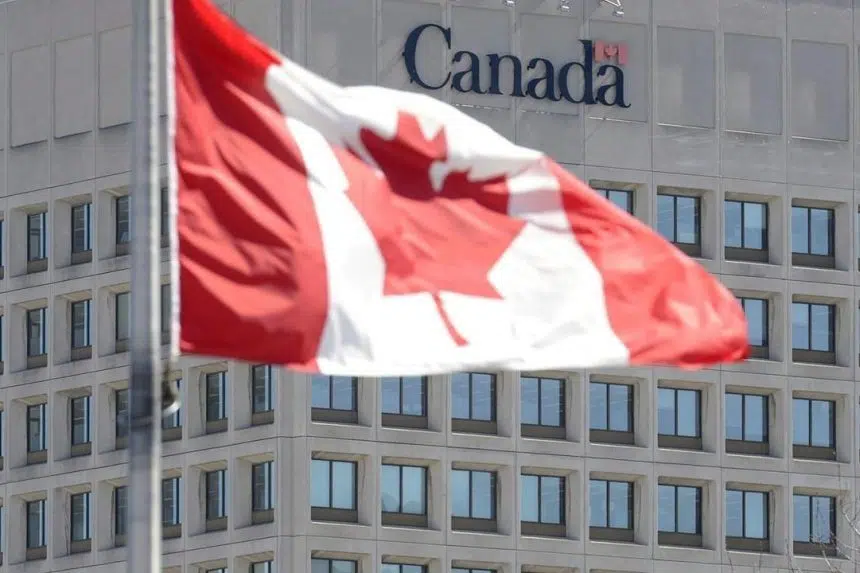Saskatchewan may follow the lead of the Alberta government and other organizations in launching a legal challenge of the Emergencies Act.
A spokeswoman for Premier Scott Moe said in a statement to The Canadian Press on Tuesday that the province hasn’t ruled out legal action.
Prime Minister Justin Trudeau invoked the act last week and the House of Commons passed a motion Monday night to confirm the declaration of emergency powers.
The motion was passed 185-151 as the NDP supported the minority Liberal government.
Using powers under the act, police on Friday started clearing out truckers opposed to COVID-19 vaccine mandates as well as other protesters from downtown Ottawa.
Moe opposed the use of the law when it was presented to premiers last week. According to the statement Tuesday, the Saskatchewan government is evaluating what effects the Emergencies Act could have in the province.
Moe took to Twitter to react to the news of Monday’s vote.
I guess it’s not surprising that the Liberals voted to support invoking the Emergencies Act.
But the NDP had the chance to hold them accountable and stop this abuse of power.
They failed to do so. Never forget that.
— Scott Moe (@PremierScottMoe) February 22, 2022
There have been a lot of reactions towards the Emergencies Act being passed in Canada for the first time.
The act gives more powers to police to fine and arrest people, while granting certain powers to the federal government on a temporary basis that it might normally need Parliament or the provinces for.
Noa Mendelsohn Aviv, the executive director of the Canadian Civil Liberties Association (CCLA), joined Gormley on Tuesday to speak out against the government’s decision to invoke the act.
She says the association also is in the process of challenging it in court.
“It’s a very large concern. We’re thinking of the long game,” Mendelsohn Aviv said. “A future government could use exactly this precedent and government could say, ‘We don’t like this. There has been some disruption, we’re going to shut this down, and we’re going to declare an emergency.’
“I’m not comparing the situation in Ottawa to anything that we have seen before or to any other kinds of protests by marginalized groups, although it is not a free for all and although reasonable limits can be set, those limits need to be determined in accordance with democratic law.
“It’s an overreach (by the government), absolutely.”
The Emergencies Act was made law in 1988, replacing the War Measures Act which former Prime Minister Pierre Trudeau used during the October Crisis in 1970.
Mendelsohn Aviv believes people have become too complacent with the idea of emergency measures being put in place over the last two years during the COVID pandemic.
“We’ve gotten used to emergency powers. We’ve heard about them so much over the last two years, we’ve kind of resigned ourselves,” she said.
“When we hear emergency orders, we have to understand that the democratically elected representatives are not passing those laws. They may be asked to look at them after the fact, but they’re not passing those laws and action can be taken by the government, this government (and) future governments, against protesters of all kinds.
“The act applies with sweeping powers across all of Canada, including Saskatchewan (and) including provinces where premiers said, ‘We don’t need additional powers. We do have the capacity and the authority to deal with situations here.’ ”
Mendelsohn Aviv says speaking out about the Emergencies Act doesn’t mean the association supports the protests that took place in Canada’s capital, or the blockades impacting borders across the country.
“We haven’t said anything about what was happening in Ottawa. We were disturbed by allegations of criminal activity, we were disturbed and concerned about allegations of racist and homophobic intimidation and harassment, and police should do something about that,” she added.
“That doesn’t change the fact that the Emergencies Act is a very, very massive power that was brought in to deal with those problems. We just don’t think it was justified.”
The Emergencies Act automatically expires 30 days after it was enacted unless a continuation is put forth, but the House of Commons or Senate can revoke the act before that happens.
— With files from The Canadian Press











